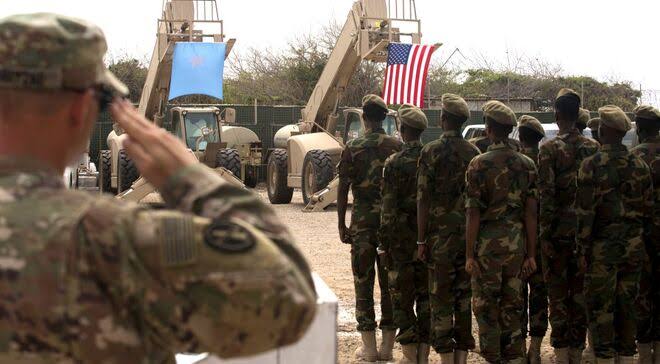Facebook Twitter (X) Instagram Somali Magazine - People's Magazine
The self-declared Republic of Somaliland has announced its willingness to host a United States military base in the strategic port city of Berbera. This offer is positioned as a mutually beneficial collaboration and is not explicitly tied to the U.S. recognizing Somaliland’s independence, though such recognition remains a long-term aspiration.
Speaking to the media, Bashir Goth, Somaliland’s representative to the U.S., stated: “Somaliland would be ready to host a US military base in Berbera if it serves the mutual interests of our two nations.” He added that the proposition aligns with Somaliland’s national interests and reflects its status as a self-governing entity.
While Somaliland declared independence from Somalia in 1991, it has yet to gain international recognition despite operating its own military, currency, and issuing passports.
Strategic Importance of Berbera Port
Berbera, situated along the Red Sea, is a critical location for global maritime trade and security. Analysts suggest that establishing a U.S. base in Somaliland could provide significant intelligence and strategic advantages in the volatile Horn of Africa.
According to Thomas Wolf, a political analyst at Kenya’s TIFA research center, such a move would allow the U.S. to monitor arms trafficking, Chinese military activities in Djibouti, and Houthi movements in Yemen. Wolf added that Somaliland’s strategic location might make it a priority for the U.S. under the administration of former President Donald Trump, should he return to office.
Past Agreements and Regional Tensions
In January 2024, Somaliland reached an agreement with Ethiopia, granting Ethiopia lease rights to the Berbera port in exchange for its recognition of Somaliland’s independence. This deal escalated tensions with Somalia’s federal government, which firmly opposes Somaliland’s secession.
More recently, Turkish President Recep Tayyip Erdoğan facilitated discussions between Somali President Hassan Sheikh Mohamud and Ethiopian Prime Minister Abiy Ahmed. The talks, held in Ankara, produced a commitment to resolve disputes through technical discussions by February 2025. A bilateral agreement is expected within four months of these talks.
Implications for U.S.-Somalia Relations
Should the U.S. accept Somaliland’s proposal, it could alter the balance of power in the Horn of Africa. While some experts argue this would bolster security in the region, others believe it risks exacerbating tensions between Somaliland and Somalia’s central government.
Somaliland has emphasized that its sovereignty is non-negotiable. “We consider ourselves an independent and sovereign state. Therefore, we evaluate any partnerships with friendly nations exclusively through the prism of our national interests,” Goth clarified.
Future Prospects
The possibility of U.S. recognition of Somaliland remains uncertain, but geopolitical shifts in the region may bring this issue to the forefront. With Berbera’s port poised to play a pivotal role in military and trade operations, Somaliland’s strategic importance cannot be overlooked.
As global powers continue to vie for influence in the Horn of Africa, Somaliland’s offer signals its readiness to engage in international partnerships while advancing its quest for recognition.

